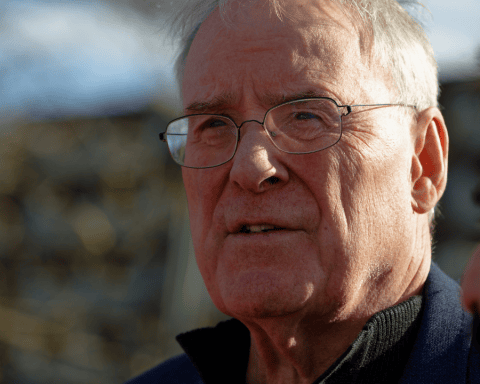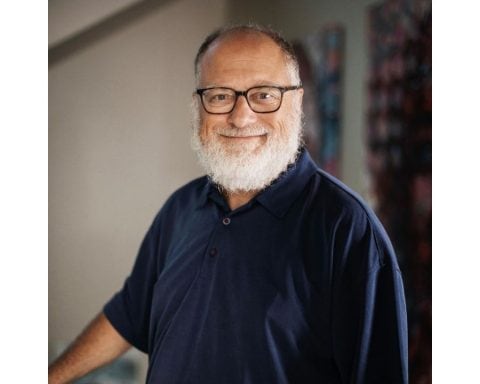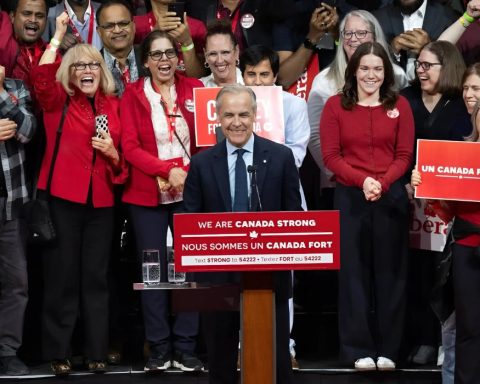Amid the dreaming spires of Oxford, U.K., the world’s leading social optimists – philanthropists, activists, entrepreneurs and a few celebrities – met in April to discuss how to keep improving the world amid a nightmare political climate of fear and nationalism.
It was quite the mood swing for the Skoll World Forum, a global meetup for social entrepreneurs inspired by Canadian Jeff Skoll, who was eBay’s first president and now spends his time founding organizations that address global social, medical and economic ills. In its 15th year, Skoll World adopted the tough-love theme, “Fault Lines: Finding Common Ground.” Attendees were in a cautious and defensive mood, given the rise of Trump, Brexit, and us-versus-them politics.
In her opening remarks, Skoll Foundation CEO Sally Osberg tackled that struggle head-on, expressing the hope that “exposed fault lines” may actually encourage change, by drawing attention to unsolved problems and forcing activists to listen harder, think more creatively and develop more innovative partnerships. Here are seven takeaways from Skoll World 2017 that suggest the future is still social:
- Entrepreneurs are redefining the nature of business. The conference opened with an interview with Hamdi Ulukaya, founder and CEO of Chobani, the New York company behind America’s leading yogurt brand. Ulukaya challenged the notion that businesses exist only to turn a profit. Born into a Kurdish farming family in Turkey, Ulukaya has made a point of hiring refugees (they now make up a fifth of Chobani’s workforce), and he created the Tent Foundation to help refugees around the world. Ulukaya also believes in sharing; last year he promised that when Chobani becomes a public company, he will gift 10% of his own shares to his employees.
Ulukaya told forum attendees that he is trying to build a business based on fairness and generosity – principles he learned from his mother. “I never thought I would get involved with business. I was always thinking I was on the other side,” he said. He shares critics’ anger at unsavoury business practices, but says his job at Chobani is to be “a competitive innovator, and channel that anger into the marketplace. The good people have to win.”
Ulukaya’s work proves that good examples can make a difference. Through Tent he has cajoled 70 companies, from Accenture to Zynga, into donating money, services or technology to support refugees. Business, he says, “is still the most effective way to change the world.”
- Embrace your critics. Another trailblazing speaker was Jim Yong Kim, president of the World Bank. Founded to promote prosperity in the developing world, the bank has often been criticized for encumbering poor nations with unwanted projects and bad economic policies. Kim himself was one of those critics. As a physician and co-founder of a not-for-profit that delivers health care to the world’s poorest regions, he opposed the World Bank’s “trickle-down” economic policies and called for its complete abolition.
As president, Kim redirected the bank’s resources to combat the 2014 Ebola pandemic when conventional health-care organizations were slow to act. Later, he brought health experts together with the reinsurance industry to create a new “parametric” insurance program that will free up emergency funds at the first sign of future pandemics – supported by insurers in hope of reducing the life-insurance and business-interruption claims that generally follow epidemics. “The incentives are aligned,” announced Kim, “so this [the slow response to Ebola] will never happen again.”
- Serious Celebrity No.1. Jeff Skoll ended the first day by handing an “Honorary Skoll Award” to Don Henley, founder of the Walden Woods Project, formed to protect Henry David Thoreau’s historic Walden Pond, near Boston. You may know Henley better as co-founder of The Eagles. “The first songs I learned on guitar when I was 13 were Eagles songs,” said Skoll. In accepting his award, Henley took a serious turn. He noted that Thoreau, as writer of both Walden and an anti-slavery essay called “Civil Disobedience,” is considered a founder of both the environmental and social justice movements: “two distinct yet related sets of moral imperatives.”
- Fighting fake news. Day 2 started with an example of how philanthropy can counter intolerance. As part of a special panel on “The Future of Media,” the Omidyar Network, a social investment firm established by Skoll’s former boss, eBay founder Pierre Omidyar, announced a US$100 million fund to support investigative journalism, strengthen independent media and counter the spread of misinformation. As panel moderator Pat Mitchell noted, “You can't have a free and open society without free and open access to information that is reliable.”
- Reach out and touch someone. You don't have to be a philanthropist to make a difference. Just do what you can, when you can. That’s the message of Dorcas Mensah, a 24-year-old Ghanaian studying international development at the University of Edinburgh. She told the conference that when she was invited to do an internship at a London bank, she lacked both the professional clothes and spending money to make the right impression. “I couldn't show up in jeans,” she said.
Two strangers came to her rescue. A business owner she knows only as “Mr. Biney” gave her 500 pounds for clothes and the occasional tea. And a woman she never met, calling herself “Auntie Sheila,” paid for a shoe-shopping spree. Mensah’s challenge to the Skoll attendees: Recognize your power to help others. “Be Auntie Sheila, be Mr. Biney: people who are not afraid to help others. Let your light shine.”
- Serious Celebrity No. 2. The Skoll Foundation presents a “Global Treasure” award to extraordinary people addressing pressing problems. This year’s winner was Bono, lead singer of U2, for his co-founding of non-profit organizations fighting AIDS and poverty. Bono and Skoll are also co-founders of Rise, a new social impact fund that will invest in worthy businesses such as health care and clean energy, or housing and education in developing economies.
In accepting the award, Bono noted that “Capitalism is not immoral, but it is amoral. You have to tell it what to do.” Asked by Skoll how he reconciles serious activism with the life of a pop star, Bono said he and his bandmates agreed early on that the only way to justify their commitment to music was by working on social issues off-stage: “That gave us permission to be in the band.”
- It all comes down to politics. Harvard business professor Michael Porter ended the conference by warning attendees they had to pay more attention to the self-serving structure of politics. Porter, who specializes in competitiveness, says he began looking at politics last year only reluctantly. “I never thought government was important,” he said. “I thought it was a sideshow. But it’s not. We need government to make good choices.”
Porter reached this epiphany after he and his Harvard colleagues reviewed all the painstakingly researched, cutting-edge advice they had given governments about promoting prosperity – and found none of it had been adopted. While he studied the U.S. scene, he said the same general problems can be found throughout the world: ongoing failures to reform health care, taxation, education and infrastructure to ensure that people prosper along with corporations. Porter’s conclusion: “Our system is not designed to deliver solutions. It’s designed to advance the interests of the system itself, starting with our political parties.”
To fix the system, Porter said, we need campaign-funding reform, new processes for selecting candidates and ranked-choice voting (which lets voters pick second, third and fourth choices). None of this will come from the politicians, he warned: Voters must demand it. “We can change the way political systems work. But it’s not going to happen naturally.”
It would be an exaggeration to say that Skoll World attendees left Oxford with a spring in their step; there was too much work ahead. But the annual progressive clambake ensured that no one would be doing it alone.





